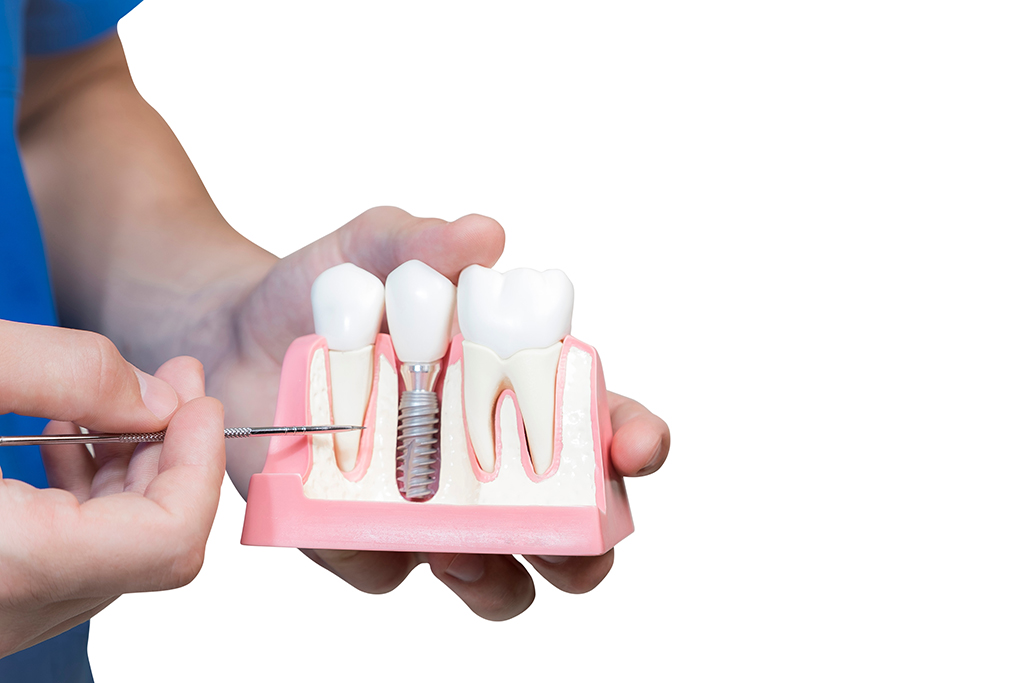
Need An Oral Surgeon? Things to Know Before Getting Dental Implants | Frisco, TX
Photo By Mila Larson at Shutterstock
If you have any missing or damaged teeth, one of the best solutions is to contact an oral surgeon in Frisco, TX and get dental implants. Dental implants are a better alternative than dentures and other dental solutions. They also last longer and will help maintain the overall health of the jawbone and prevent regression.
The entire process involved securing an artificial tooth to your jawbone. The implants are made from titanium, which will fuse to your bone in order to prevent slippage and any additional damage. The titanium is long-lasting, so the dental implants should last you for life. They’re a great investment in this regard.
Before you can get the dental implants, an oral surgeon will need to take a look at your oral condition to evaluate whether you meet all of the requirements necessary. The success of the dental implant surgery will depend on not only the experience of the oral surgeon in Frisco, TX, but also the condition of your jawbone. If you have poor oral hygiene and health or any other type of dental condition that might affect bone growth, you will not be a good candidate and will need to look at other options with your surgeon. While this is a relatively simple surgery, it does come with some risks, which we’ll explore below.
#1. Nerve Damage
One of the biggest risks involved with getting dental implants is damage to the inferior alveolar nerve. Before you get dental implants, an oral surgeon will want to sit down and talk to you about this risk in detail, so you know exactly what to expect and what could happen. This type of nerve damage can be difficult to treat. The inferior alveolar nerve is located in the jaw and is responsible for providing sensations to the bottom row of teeth. This nerve is quite fragile and can be damaged by local anesthetic injections or by implant drills. In some cases, the implant themselves can damage this nerve if it is placed awkwardly or improperly.
The best way to avoid this type of unpleasant complication is to ensure that the surgeons involved with your surgery take a lot of time to look at the anatomy of your mouth, as well as the surgical procedures that will be involved with the implantation. These professionals may also want to come up with a personalized treatment and aftercare plan.
#2. Sinus Problems
Another risk of dental implants is sinus problems. This is more likely to happen if the implants are placed in the upper jaw. If the implants accidentally protrude into the sinus cavity, it could cause the patient to experience frequent sinus infections or sinusitis. Patients who do not get a sinus lift or any type of bone grafting are also more likely to experience this problem. If you are at risk for this type of complication, our oral surgeon will discuss it with you in detail. He’ll also talk about the preventative mechanisms that can be implemented.
If you are already struggling with sinus problems, it’s crucial that you let the professionals handling your case know ahead of time, as you might be more vulnerable to these risks.
#3. Infections
When it comes to dental surgery, infections are perhaps some of the most common concerns that an oral surgeon will have. Although the surgeons will use antiseptics and sterile tools and techniques, the infections mostly emerge after the patient has returned home. It is crucial for the patient to comply with post-surgery, aftercare recommendations for cleaning. Those who fail to comply with these recommendations are more at-risk for infections.
One of the main problems with infections is that they can emerge up to two months after the implant is performed. If there is an infection, it could lead to decay of surrounding tissues, pain, and other problems. You may need to get reassessed at a later date if this happens.
#4. Tissue Damage
Last but not least, it’s possible for the dental implant to damage surrounding tissues and even blood vessels. After all, this is a fairly large procedure that will involve drilling into the jawbone. Depending on the extent of the damage, you could be faced with a lot of future complications that will require additional treatment from an oral surgeon. The best way to avoid this problem is to prevent any micro-movements from happening after the implant is added. Micro-movements can prevent proper bone and tissue regrowth that can cause the implant to begin to wiggle. If the implant is not solidly attached to the jawbone, it could cause painful sensations to emerge in the future. It could also result in ingrown soft tissue growth.
Once again, the key to preventing this from happening is to comply with all of the recommendations that are provided to you. This might include things like chewing on soft foods only after the surgery to avoid disrupting the implant. You should also highly consider taking it easy for the next several days. You don’t want to partake in any strenuous activity or exercise that could disrupt the implant.
Schedule an Appointment and Meet Dr. Eftekhari!
In order to avoid the risks involved with getting dental implants, it’s crucial that you do your research and schedule a consultation with a reputable oral surgeon in Frisco, TX. Dr. Eftekhari from NextGen Oral MaxilloFacial and Reconstructive Surgery Center has undergone rigorous surgical training and completed an Advanced Fellowship Training in Facial, Oral, Head and Neck Surgery and Reconstruction. He’s one of the most experienced oral surgeons in the area and can provide a wide range of oral surgeries from bone grafting to dental implants and more.
NextGen Oral MaxilloFacial and Reconstructive Surgery Center places the wellbeing of our patients as our top priority. We accept Medicare and a wide range of most medical and dental insurances. To learn more about our services or to schedule a consultation, contact us online or give us a call at 817-893-2662.


